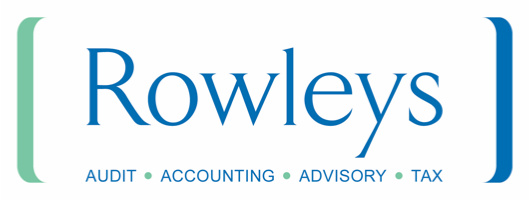News & Events
An employer’s guide to redundancy pay
7th June 2023
If you are an employer and are considering making employees redundant, it’s vital that you are aware of your legal obligations regarding redundancy pay. In this article, Rowleys Head of Payroll, Rebecca Gotch, shares more about redundancy pay obligations for employers, along with tips to make the redundancy process as smooth as possible.
What is redundancy pay?
Redundancy pay is a payment that an employer is legally required to make to employees who are being made redundant and who have worked for you for two years or more.
Who is entitled to redundancy pay?
To be entitled to redundancy pay, an employee must:
- Have been employed by you for at least two years.
- Have been working under a contract of employment.
- Not be retiring or taking early retirement.
How much redundancy pay can an employee get?
The amount of redundancy pay an employee is entitled to depends on their age, length of service, and weekly pay.
- If your employee is aged 17-21 you will need to pay half a week’s pay for each full year they’ve worked for you.
- If your employee is aged 22-40 you will need to pay 1 week’s pay for each year they worked from age 22 and half a week’s pay for each full year they worked before that.
- If your employee is aged 41 or over you will need to pay 5 weeks’ pay for each full year they worked from age 41, 1 week’s pay for each full year they worked when they were between 22 and 40, and half a week’s pay for each year they worked when they were between 17 and 21.
An employee’s weekly pay is the average they earned per week over the 12 weeks before the day they got their redundancy notice. It is based on their weekly pay before tax (gross pay) and should include regular overtime provided in their contract and any bonuses or commission.
Redundancy pay is capped at 20 years of service.
You must tell your employee in writing how their redundancy pay has been calculated.
What happens if I fail to pay redundancy pay?
If you fail to pay redundancy pay, your employee can take you to an employment tribunal. The employment tribunal can order you to pay the employee their redundancy pay, plus interest.
Do I have to pay notice?
If there is no notice period you will need to make a payment in lieu of notice (PILON)
From April 2018 the Post Employment Notice Pay (PENP) legislation was introduced. PENP is the basic pay equivalent for any unworked notice period calculated using a specified formula.
Tips for getting it right
Here are some tips if you are considering making employees redundant:
- Follow the correct procedure. There is a legal process that employers must follow when making employees redundant. If you don’t follow the correct procedure, you could be liable to pay the employee compensation.
- Provide redundancy pay. If you are making employees redundant, you must pay them redundancy pay in accordance with the law.
- Provide support. When employees are made redundant, they may be feeling a range of emotions, such as anger, sadness, and anxiety. You should provide them with support, such as access to counselling services.
- Speak to your payroll provider as soon as you can. They can help you to calculate redundancy pay and will ensure the right payments are made when required.
Making employees redundant is a difficult decision, but it is important to follow the correct procedure and to be fair and reasonable. By doing so, you can help to ensure that the process is as smooth as possible for both you and your employees.
Our CIPP-qualified payroll experts manage all aspects of payroll. We work with hundreds of clients of different sizes To find out more about our payroll services, please contact Rebecca Gotch, either by email: rebecca.gotch@rowleys.biz or call: 0116 282 7000.
